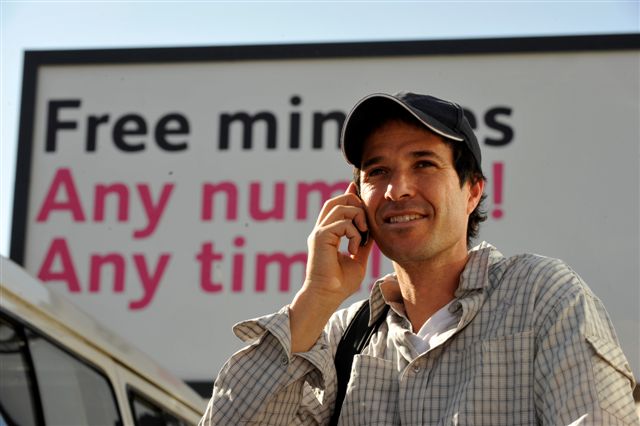
One can’t accuse Terry Shatenstein and Ari Kahn of thinking small. They have dreamt up a way they think will help connect the billions of people worldwide who don’t have access to telephony to the telecommunications grid for the first time.
The two entrepreneurs — Shatenstein was one of SA’s early dot-com pioneers and Kahn a co-creator of Airborn, the company behind a mobile text messaging technology sold to America Online — believe they have come up with an idea that will help connect the estimated 3bn people on the planet who still don’t have access to mobile telephony.
Their company, Starlogik, has registered a range of patents in more than 40 countries that will allow mobile users with zero airtime to place “missed calls” without having to go through the cumbersome and somewhat expensive (for the operators) process of sending “please call me” text messages.
The two men have spent the past eight years developing the solution and investing millions of dollars registering patents. They’ve now begun talking to operators in SA and elsewhere with the view to implementing the solution.
The platform, called SOS Zero, “leapfrogs ‘please call me’”, says Shatenstein. “It takes the service from a secondary value add and elevates it to a primary core service offering.”
He says “please call me” services also have social stigma attached to them, whereas a missed call is “the ubiquitous call-back element in cellular”. Also, he says, “please call me doesn’t scale technically” and costs operators more money.
Shatenstein is reluctant to provide details, at least not on the record, about how the system works, but says cellphone users — even those with zero airtime balances — can use it to placed missed calls to people they’d like to call them back.
The system is what Starlogik describes as a “massively peer-to-peer cellular service”. Cellphones without airtime “ping” the established paying base, both prepaid and postpaid, for callback. Users without airtime are able to dial regular numbers to “spin network-generated missed calls to any phone on the planet, delivering new terminating revenue on callback”, the company says.
He believes this will help get those who still aren’t connected access to voice communications while not costing them anything and allowing operators to monetise a large and untapped segment of the market.
“This market hasn’t been addressed adequately, mainly because of the acquisition costs and the cost of servicing people who can barely afford to feed themselves, never mind feed a phone,” he says. “As a result, this market has largely been written off as not addressable.”
Shatenstein says Starlogik’s “primary purpose is to connect the unconnected in a sustainable and profitable way” for telecoms operators by introducing the “world’s first free cellular offering, free of third-party advertising and free of any change to any network assets or user behaviour”.
He points out that in spite of the focus by operators worldwide on building revenues from data, voice still makes up the bulk of most mobile companies’ revenues and profits. By allowing more people to communicate — for free and without airtime — Shatenstein says Starlogik wants to “bring core revenue back to operators’ existing circuit-switched networks”.
“We believe this model is the only profitable and sustainable way of addressing the last 3bn who have yet to make a call,” he says. “Operators think revenue stops flowing at zero, but the economics of ‘free’ are profound. We are able to stimulate inbound revenue from people who ordinarily wouldn’t be making calls.”
Shatenstein says Starlogik in is discussions with operators in several countries, including SA. — Duncan McLeod, TechCentral
- Subscribe to our free daily newsletter
- Follow us on Twitter or on Facebook




